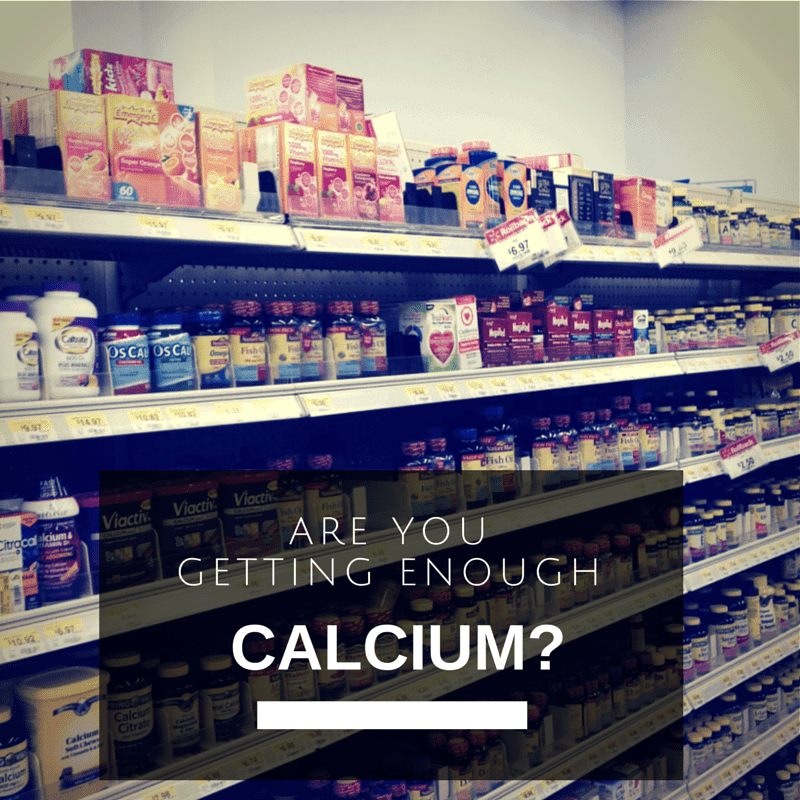Think you’re getting enough calcium? You might be surprised! Here are tips for maximizing your calcium absorption so you get the most out of your food

Calcium is an essential mineral in our bodies and research has shown that there are undeniable benefits to making sure you get enough calcium. Not only is calcium vital for strong bones, but calcium plays a major role in muscle activity. But are you getting enough calcium? Your body may not be absorbing as much calcium as you think.
I have been reading through my ACSM manual in preparation for my personal training exam and found that, despite taking a calcium supplement for years, my body wasn’t getting as much calcium as I thought, and it was evident. I am very active and muscle soreness has always been a problem for me.

I constantly struggled with delayed onset muscle soreness (DOMS), despite flexibility training, a good diet, and adequate recovery. While some muscle soreness is normal, I was way too sore. I knew the amount of muscle soreness I was experiencing wasn’t normal.
Something was off in my nutrition, and I did some digging and found that I wasn’t getting enough calcium. I recently stepped up my calcium intake and took more care with when and how I was getting calcium and found that my muscle soreness and cramping has improved tremendously.
Tips for getting enough calcium in your diet
Here are some great tidbits about calcium absorption *. These are worth a look, whether you supplement calcium or get your calcium from your diet.
- Vitamin D increases calcium absorption in your body
- Calcium from food and/or supplements is absorbed better when taken throughout the day in amounts of 500 mg or less
- The more calcium ingested at one time, the less calcium is actually absorbed by the body
- Calcium carbonate is best absorbed when taken with food
- Calcium citrate can be taken at any time
- Foods high in oxalates (spinach, rhubarb, almonds) and phytates (legumes and wheat bran) can bind calcium, reducing bioavailability
- Vegetarians consume plant-based diets high in oxalates and phytates, putting them at greater risk for calcium deficiency
- High alcohol, sodium, and caffeine intakes can increase calcium loss (i.e. excretion through urine)
- High protein diets (intakes > 2 g/kg body weight) can increase calcium loss
- People with low body mass and those on low-calorie or low carbohydrate diets are susceptible to increased calcium loss
- Women who are very active (i.e. athletes, military personnel) and have had exercise-induced irregular periods (amenorrhea) are at risk for calcium deficiency
- People who consume no dairy due to lactose intolerance or dairy allergies may be at risk for calcium deficiency
- Overall, women are less likely than men to get sufficient calcium from food
*Sources:
- ACSM’s Resource Manual for Guidelines for Exercise Testing Prescription, 6th Edition, p. 206-207
- National Institutes of Health: Office of Dietary Supplements, Dietary Supplement Fact Sheet for Calcium
Disclaimer: The information on this site is not intended or implied to be a substitute for professional medical advice, diagnosis or treatment. All content is for general information purposes only.

Sarah Jane Parker is the founder, recipe creator, and photographer behind The Fit Cookie. She’s a food allergy mom and healthy living blogger based in Wyoming. Sarah is also an ACSM Certified Personal Trainer, ACE Certified Health Coach, Revolution Running certified running coach, and an ACE Certified Fitness Nutrition Specialist
